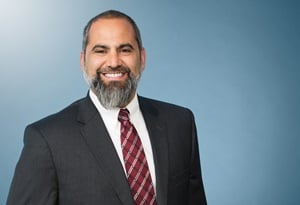Election Night for Insurance Geeks: November 2022
Election outcomes affect every industry. Insurance, however, is unique in the range of elected policymakers who can impact it directly — insurance commissioners, governors and Congress (not to mention state legislatures and other statewide officials). So as insurance stakeholders settle in the night of November 8 with popcorn and other traditional fare, what are our “ones to watch?”
Elected Insurance Commissioners
No policymaker impacts the insurance industry more than commissioners, 11 of whom are elected statewide.
This year, four incumbent commissioners are up for re-election (or, in one case, initial popular election), each with prospects for a favorable result.
Oklahoma: Commissioner Glen Mulready (R) is running unopposed for his second term. In his first term, Mulready established himself as a national leader on health policy as the chair of the NAIC’s Health Insurance and Managed Care (B) Committee, and on restructuring mechanisms (insurance business transfers and corporate divisions) as co-chair of the Restructuring Mechanisms Working Group (a natural extension of his leadership on the issue as a state legislator). With another four years of service assured, look for his influence on those and other issues to remain and grow.
California: Observers view Commissioner Ricardo Lara (D) entering the general election in a good position, with his strongest potential opponent falling off the ballot in California’s open primary. Lara’s progressive leanings and his state’s influence will continue to make him an important policymaker if he wins a second term.
Georgia: Now a perennial state to watch, Georgia Commissioner John King (R) came through his primary on parallel tracks with Gov. Brian Kemp (R). Both handily defeated primary opponents and go into the general in strong positions. Publicly available polling on the Governor’s race favors Kemp, with a Senate race deemed a “toss up.” Commissioner King and his strong team have dug in to make big strides at his department as he seeks election to the position to which he was appointed in 2019.
Kansas: The state has one of the most closely watched Governor’s races, with Republicans heavily targeting incumbent Laura Kelly (D), so Kansas has no shortage of political energy. Incumbent Commissioner Vicki Schmidt (R) won election in 2018 by 25 points in a year when Democrat Laura Kelly was elected governor by five. A former state senator and pharmacist, Schmidt has been a national leader at the NAIC across health and property/casualty work.
Governors
Open Seats
Maryland and Massachusetts governors’ races are on similar patterns: Popular Republican incumbent not running for reelection; heavily favored Democratic nominees in blue states; highly influential incumbent insurance commissioners in Massachusetts’ Gary Anderson and Maryland’s Kathleen Birrane. The direction of insurance regulatory policy in these states will be of high interest.
Pennsylvania Attorney General Josh Shapiro (D) and State Senator Doug Mastriano (R) are vying to succeed term-limited Gov. Tom Wolf (D). Though Pennsylvania is a battleground state as a general proposition, polls and prognosticators favor Shapiro, with Democrats thinking they got the opponent they want in Mastriano. Gov. Wolf appointed veteran insurance regulator Mike Humphreys Acting Commissioner after Jessica Altman’s departure.
Arizona is scored as a toss-up. News anchor Kari Lake (R) is facing Secretary of State Katie Hobbs (D), with incumbent Doug Ducey (R) term limited. Director Evan Daniels quickly staked out ground as a leader on innovation, drawing on his previous experience.
The open seat in traditionally blue Oregon (there hasn’t been a Republican governor since 1987) snuck onto prognosticator’s toss-up list because of a unique dynamic including a third-party candidate. Commissioner Andrew Stolfi and his team have led on health care issues and consumer protection, and the commissioner has brought broad experience in state government and international affairs to the job.
Three other seats have open elections but are scored as safe outcomes. In Arkansas, Republican Sarah Huckabee Sanders is heavily favored. Commissioner Alan McClain has been a leading voice on property/casualty issues at the NAIC. Nebraska Republican nominee Jim Pillen likewise is favored. Director Eric Dunning has contributed to international policy making and leads a department influential on key regulatory issues. Hawaii Democratic Lieutenant Governor Josh Green looks to succeed his term-limited successor, David Ige (D), with Colin Hayashida now leading the state’s insurance division.
Other Big Races as Democrats Defend 2018’s Red-to-Blue Flips
Wisconsin is scored as a toss-up. Incumbent Tony Evers (D) flipped the state in 2018. There was Republican unease about how the primary shook out, but challenger Tim Michel has made the race close. Commissioner Nathan Houdek served as deputy commissioner in the department before his appointment and has applied a deep background in legislative affairs to lead the department. Houdek currently serves as vice chair of both the NAIC’s Accelerated Underwriting and Health Innovations working groups.
Nevada incumbent Steve Sisolek (D) also flipped his state in 2018 and now faces a challenge from Republican Joe Lombardo, which has drawn to a toss-up as election day approaches. Commissioner Barbara Richardson has served through previous gubernatorial transitions since 2016. In addition to her tenure as commissioner, Richardson brings extensive insurance experience from the private and public sectors to the job.
Three races are scored as leaning toward Democratic incumbents who flipped their states in 2018 but are still closely watched. Maine features a rematch between incumbent Janet Mills (D) and the previous governor, Paul LePage (R). Veteran regulator Timothy Schott serves as the insurance department’s acting superintendent in the wake of influential Eric Cioppa’s retirement. Michigan Governor Gretchen Whitmer (D) faces Republican Tudor Dixon. Whitmer’s Director of Insurance, Anita Fox, leads a team influential on national regulatory policy and serves as co-vice chair of the NAIC’s Property & Casualty Insurance Committee. New Mexico Governor Michelle Lujan Grisham (D) faces Republican nominee Mark Ronchetti, a meteorologist who previously ran for Senate. Insurance Superintendent Russel Toal and his office’s leadership includes contributions on health care and market conduct issues.
In 14 other gubernatorial races, polls and prognosticators point to likely or safe Republican re-election. In 7 additional races, Democrats are scored as likely to retain their seats.
Congress
In the House, the latest Cook Political Report currently has 35 races classified as toss-ups — 25 of them incumbent Democrats and 10 Republicans. Moreover, Cook ranks two Republican seats in the lean or likely Democrat category, with nine Democrats as lean or likely Republican.
With the expectation that the House will turn Republican, all eyes are on the Senate. With a current 50-50 tie, any deviation could change control. We may not know control over the Senate until the December 6 runoff race in Georgia (if necessary).
Key states to watch include: (in time zone order)
Ohio: An open seat (former Republican) that Republicans had hoped to win comfortably. Trump-backed J.D. Vance (R) and Rep. Tim Ryan (D) have run a closer-than-expected race.
Pennsylvania: With a Republican incumbent retiring (Toomey, the top Republican on the Senate Banking Committee), this is Democrats’ best chance to flip a Senate seat. John Fetterman (D) had led Dr. Mehmet Oz (R) throughout most of the race; however, a difficult debate performance has contributed to tightening this race in the final weeks.
North Carolina: Another retiring Republican incumbent makes this an open seat. Rep. Ted Budd (R) is favored but facing a strong candidate in Cheri Beasley (D), a former state Supreme Court chief justice. Democrats are in play here, but a win would be a surprise.
Georgia: Incumbent Rafael Warnock (D), Senate Banking Committee member, is leading Trump-backed candidate Hershel Walker (R). Georgia requires the winner to receive 50 percent of the vote or face a runoff (December 6), so we may not know the winner on election night.
New Hampshire: Incumbent Maggie Hassan (D) is leading Don Bolduc (R) in this race; however, a Republican win could be an early indication of overperforming expectations.
Wisconsin: Incumbent Ron Johnson (R) is leading Lt. Governor Mandela Barnes (D) in a race Democrats originally had on their short-list of flip opportunities.
Nevada: This may be Republicans’ best chance of flipping a seat, with incumbent (and Banking Committee Member) Cortez Masto (D) trailing in recent polls to former state Attorney General Laxalt (R).
Arizona: Democratic incumbent Mark Kelly is facing Trump-backed Blake Masters (R). This race has narrowed from a significant Kelly lead in a normally conservative state.
Senate Banking Committee
Regardless of control of the Senate, Sen. Pat Toomey’s (R-PA) retirement ensures the Committee will have a new top Republican. It is expected that Sen. Tim Scott (R-SC) will take over that role. Sen. Scott’s background includes time spent as an insurance agent and as owner of the Tim Scott Allstate Insurance Agency, giving him a solid background on insurance-related issues. On the Democratic side, Sen. Sherrod Brown (D-OH) will continue to lead Democrats.
House Financial Services Committee
In the House, the expected takeover by Republicans will elevate Rep. Patrick McHenry (R-NC) to Chairman of the Financial Services Committee. Current Chair Maxine Waters (D-CA) is expected to become Ranking Member, remaining the top Democrat on the Committee. Rep. French Hill (R-AR) is expected to take over the Housing & Insurance Subcommittee with Rep. Emanuel Cleaver (D-MO) becoming Ranking Member; however, there is potential for shakeup at the subcommittee level.





